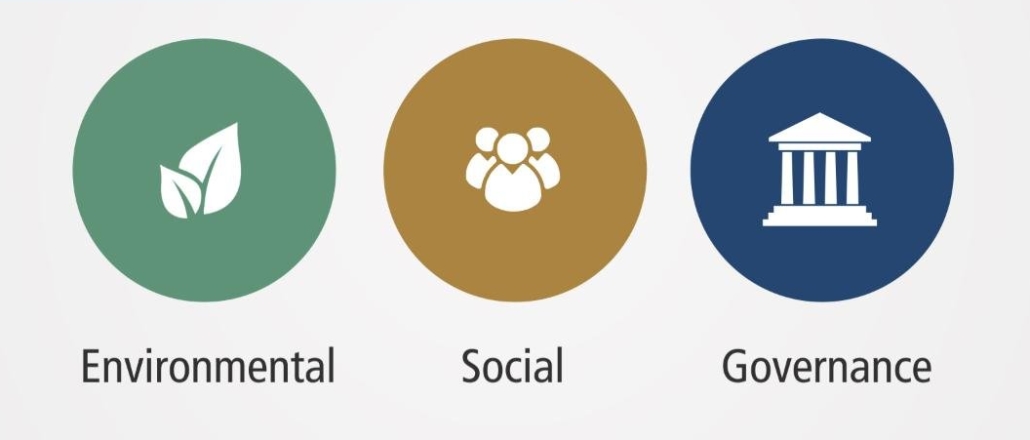(ATF) The Covid-19 pandemic is a clear warning on the debilitating impact that environmental risks can have on economies and businesses, which traditional risk models have not been able to predict or assess. The vulnerabilities of certain sectors, such as aviation and tourism, have been laid bare, while others, such as technology, have remained remarkably resilient. It is clear that action and awareness from investors on sustainability risk will only accelerate after Covid.
With investor preferences towards bond issuers within more resilient sectors clearly evident, an appreciation of sustainability risks has also increased. In a series of Covid-19 seminars organised by the UN Principles for Responsible Investment, almost all (92%) participants said sustainability discussions were a “must” for fixed income investors when engaging with issuers.
Another takeaway from these seminars was that Covid-19 is helping to raise awareness among companies that they have an opportunity to consider ESG – environmental, social and governance – factors more systematically in their strategic planning, in order to accelerate the transition towards sustainable business models.
ESG progress in Asia
Policy support in Asia is strong in promoting the adoption of pro-ESG sectors, with many governments across the Asia Pacific region prioritising ESG and growth, seeing them as complementary drivers of each other. Some governments in the region are taking the lead in promoting ESG as part of their agendas for economic growth, with Hong Kong and Singapore chief among them.
Hong Kong is developing as a regional hub for sustainable banking and green finance. The Hong Kong Monetary Authority, in close collaboration with the Stock Exchange of Hong Kong, is driving sustainable initiatives by introducing ESG-focused listing requirements, enhancing corporate governance and transparency, and updating its reporting guidelines.
Singapore is also placing great emphasis on sustainability. In August 2019, Prime Minister Lee Hsien Loong, during a National Day Rally address, highlighted the importance of ESG to the nation’s economic progress. This was followed closely by an announcement by the Monetary Authority of Singapore to invest US$2 billion in developing the country as a green finance hub and promoting sustainable financing in the financial sector.
Japan’s Government Pension Investment Fund, the world’s largest pension fund, has similarly put ESG at the heart of its investment strategy by investing in sustainable indexes, promoting innovative investment practices and improving ESG standards in its passive portfolios.
Other countries and jurisdictions in step with this trend include Indonesia and Taiwan, where green finance products and practices are being promoted. In India there is a push from large corporations, to nurture a market for green bonds.
China, Asia’s largest economy, also has ambitious plans. The government is expected to prioritise climate change in its long-term economic plans. This would be a strong signal that Beijing is putting sustainability at the forefront of corporate policy and could shift vast sums of capital toward ESG-managed assets across the globe.
Across the Asia region, such initiatives are expected to only grow in scope.
ESG provides improved bond performance
ESG evaluation can improve bond performance, given fixed income analysis is focused on managing downside risks, and ESG risk evaluation is intended to identify and manage the downsides associated with material ESG risk exposures which companies face.
In Asia, we have found that governance risk factors, which we have traditionally considered to be a material risk factor to credit performance, figure prominently in ESG risk analysis. This should not come as a surprise since the quality of governance are highly correlated with the level of transparency and honesty demonstrated by an issuer in dealing with its investors.
The availability of data to perform meaningful ESG analysis remains a key challenge, but this is not necessarily a challenge unique to Asia.
The silver lining is that Asian issuers are aware of the increased emphasis investors have placed on ESG metrics, and are responding to increased demand for ESG-related performance data. It is hoped that over time, with increased interaction between investment managers and issuers, this information gap can be addressed, which can only improve the quality of analysis.
Eastspring Fixed Income’s approach towards ESG evaluation focuses on identifying the ESG risks of an issuer and its preparedness to deal with such risks. The principle behind this is that issuers well prepared to deal with these risks are better placed to build sustainable businesses in the longer term, and reduces the likelihood of being unable to repay their debts.
Launched in December 2019, Eastspring’s Asia Sustainable Bond Fund invests in a mix of green, social and sustainability (GSS) bonds and other debt securities issued by Asian governments, quasi-governments, corporates or surpranationals, which are aligned to internal Environmental, Social and Governance principles.
# Rong Ren Goh is Portfolio Manager for Fixed Income at Eastspring Investments

























